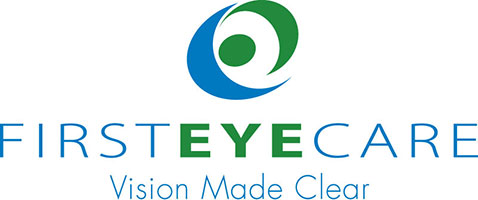COVID-19 Has Impacted All Business, Including Eye Care
The entire planet is currently facing an unprecedented crisis, the likes we have not experienced in modern history. A novel coronavirus officially referred to as COVID-19 has quickly spread across the globe, threatening the lives of millions. In December 2019, COVID-19 first emerged from a food market in Wuhan City, Hubei Province, China. The virus quickly spread across the country and eventually made its way past Chinese borders and into surrounding countries. In a short time, it traveled across thousands of miles and into faraway countries and continents due to international travel such as planes and ships, reaching the United States in a short amount of time. In early March 2020, the World Health Organization (WHO) officially declared COVID-19 a global pandemic. Shortly after WHO’s decision, Governor Greg Abbott declared that Texas was in a state of emergency.
Because of how quickly COVID-19 can spread, many governments across the world have had to make difficult decisions to protect their communities, all with the hopes of stopping the spread of the virus and flattening the curve. While officials made these decisions to protect residents, many businesses across a host of industries have seen their operations and services altered, with some businesses being forced to temporarily close their doors. While healthcare clinics remain open, they are at an increased risk due to their services. Optometry clinics are no exception.
First Eye Care DFW has been closely monitoring the situation surrounding COVID-19, following guidelines provided to us by healthcare professionals. We intend on providing useful information to our patients about how COVID-19 has affected our clinic.
What is COVID-19?
COVID-19 is an infectious disease that is caused by the most recent coronavirus, just one in a family of zoonotic viruses, meaning they travel from animals to humans. COVID-19 isn’t the first disease caused by a coronavirus to spread in recent memory. In 2003, an outbreak of SARS began in Asia, claiming the lives of 774 people. Then, in 2012, MERS made its presence felt, emerging from Saudi Arabia and claiming the lives of 858 people.
Unfortunately, COVID-19 quickly surpassed its predecessors. At the time of this writing, it has:
- Over 2 million confirmed cases worldwide
- Over 150,000 confirmed deaths worldwide
WHO has created a dashboard for users to visit to keep track of the ongoing pandemic. Additionally, you must be aware of all known symptoms of COVID-19 so that you can self-isolate yourself to prevent further spread of this virus. Common symptoms of this disease are:
- Fever
- Dry Cough
- Tiredness
- Aches and pains
- Nasal congestion
- Runny nose
- Sore throat
COVID-19 causes illnesses that range from mild to life-threatening. The incubation period for COVID-19 is anywhere between 1-14 days, meaning you can contract the disease and not show symptoms for nearly two weeks. However, many contract the virus, yet never experience symptoms nor fall ill.
According to WHO, nearly 80% of people recover from the virus without special treatment. Only one in six people fall seriously ill, have trouble breathing, and require hospitalization.
What has Texas Done?
As we have already stated, Governor Greg Abbott declared a state of emergency within Texas. Shortly after this decision, Abbott signed an executive order that banned the gathering of ten or more people, prohibited the eating or drinking in restaurants and bars, however, it allows carry-out and delivery, and closed gyms. Initially, this order was to expire on April 3, but Abbott extended the order through to April 30. On April 17, Abbott announced that private and public schools will remain closed for the rest of the school year to slow the spread of COVID-19.
Dallas County has also been forced to make difficult decisions of their own, issuing a shelter-in-place/stay-at-home order at the end of March. As of the writing of this article, Dallas County has recorded:
- 2066 confirmed cases
- 50 confirmed deaths
Dallas County laid out a list of regulations residents are advised to follow, which explain:
- When you can leave your home
- What is deemed an essential business, essential activity, and nonessential activity
- What to do when leaving your home
- The impact these guidelines have on the community
- What to do if you are sick
If you are a resident in Dallas County, you can visit Dallas County’s website to stay up to date on everything going on in your community and for resources during this difficult time.
Impact on Eye Doctors
Eye care clinics fall under healthcare and are considered essential services, meaning they will remain open during this time. However, due to the nature of their services, healthcare providers will have to alter their services and proceed with caution to prevent the spread of this virus.
In accordance with the Center for Disease Control and Prevention (CDC), officials advise ophthalmologists, optometrists, and all other doctors to only see patients who require urgent or emergency service during the current global pandemic. Two important reasons for this are:
- To limit contact between staff and patients in offices, waiting rooms, exam rooms, and surgical facilities
- To conserve vital medical supplies, such as masks, gloves, face shields, and sanitizing wipes
Prevent Blindness states that emergency care is defined as “medical care for conditions requiring prompt medical attention due to a sudden change in the eye or visual health.” These cases may be for exams, surgeries, or treatments for injuries, retinal detachments, and more eye issues that result in vision loss that can lead to permanent vision loss without treatment. If you are curious whether your case is urgent or emergent, contact your eye care provider as soon as possible.
More than likely, your eye care doctor will reschedule any non-urgent services, such as dilated eye exams, exams for glasses or contacts, general eye health exams, and more. Be sure to reach out to your eye care provider to confirm if your appointment will be moved.
First Eye Care DFW has laid out how we are reacting to the ongoing global crisis, which allows us to still best serve our community while keeping our staff and patients safe. If you have any further questions regarding our services or have an eye emergency, contact First Eye Care DFW as soon as possible.



